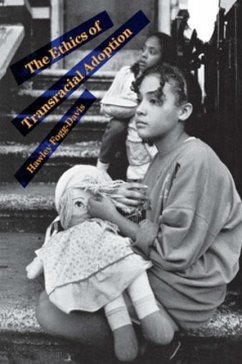Transracial adoption is one of the most contentious issues in adoption politics and in the politics of race more generally. Some who support transracial adoption use a theory of colorblindness, while many who oppose it draw a causal connection between race and culture and argue that a black child's racial and cultural interests are best served by black adoptive parents. Hawley Fogg-Davis carves out a middle ground between these positions. She believes that race should not be a barrier to adoption, but neither should it be absent from the minds of prospective adopters and adoption practitioners.
Fogg-Davis's argument in favor of transracial adoption is based on the moral and legal principle of nondiscrimination and a theory of race-consciousness she terms "racial navigation." Challenging the notion that children "get" their racial identity from their parents, she argues that children, through the process of racial navigation, should cultivate their self-identification in dialogue with others. The Ethics of Transracial Adoption explores new ground in the transracial adoption debate by examining the relationship between personal and public conceptions of race and racism before, during, and after adoption.
Fogg-Davis's argument in favor of transracial adoption is based on the moral and legal principle of nondiscrimination and a theory of race-consciousness she terms "racial navigation." Challenging the notion that children "get" their racial identity from their parents, she argues that children, through the process of racial navigation, should cultivate their self-identification in dialogue with others. The Ethics of Transracial Adoption explores new ground in the transracial adoption debate by examining the relationship between personal and public conceptions of race and racism before, during, and after adoption.
Dieser Download kann aus rechtlichen Gründen nur mit Rechnungsadresse in A, D ausgeliefert werden.









